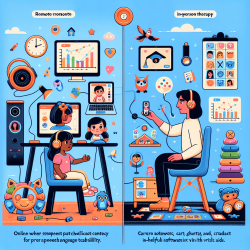As a practitioner working with individuals experiencing memory-related issues, it is crucial to understand the barriers that prevent timely care and diagnosis. Recent research titled "Barriers to seeking care for memory problems: A vignette study" sheds light on why older adults often hesitate to seek follow-up care for memory problems. This blog post will explore the key findings of this study and provide actionable insights for practitioners looking to enhance their skills and improve patient outcomes.
The Challenge of Self-Assessment
The study conducted by Jacobson et al. (2022) highlights a significant discrepancy in how older adults perceive memory issues in themselves versus others. Participants were more likely to recommend follow-up care when memory problems were described as affecting someone else rather than themselves. This suggests a bias that may stem from denial, overoptimism, or fear of uncovering cognitive decline.
For practitioners, this finding underscores the importance of not solely relying on patient self-reports when assessing cognitive function. Instead, incorporating structured cognitive assessments into routine check-ups can help identify issues that patients might overlook or dismiss.
Strategies for Practitioners
- Implement Routine Assessments: Incorporate brief cognitive assessments during regular visits to detect potential impairments early on.
- Educate Patients: Provide education on the importance of early detection and the benefits of addressing memory-related issues promptly.
- Create a Supportive Environment: Encourage open discussions about cognitive health without stigma or fear of judgment.
- Engage Family Members: Involve family members in discussions about memory concerns as they may notice changes that patients themselves do not recognize.
The Role of Practitioners in Overcoming Barriers
The research highlights that many older adults do not discuss dementia risk or memory problems with their healthcare providers despite recognizing these issues in others. Practitioners play a crucial role in bridging this gap by fostering an environment where patients feel comfortable discussing their concerns.
The study also points out that structured assessments are often underutilized in primary care settings. By integrating these tools into practice, practitioners can improve the detection rates of cognitive impairments and provide timely interventions that can significantly impact patient outcomes.
A Call for Further Research
This study opens the door for further research into understanding individual biases against seeking care for one's memory problems. Future studies could explore interventions designed to overcome these biases and improve screening rates among older adults.
Barriers to seeking care for memory problems: A vignette study










